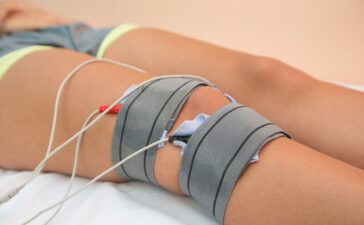What does addiction look like and how does it affect the individual?
Addiction is often misunderstood. People think of addiction as something that only affects people who are weak-willed or have no self-control. However, addiction is a complex disease that can cause profound changes in the brain.
These changes can lead to compulsive behavior and make it very difficult for people to break free from their addiction. Addiction can cause physical changes as well, like damage to the liver or heart. It can also lead to mental health problems like depression or anxiety.
The good news is that addiction is treatable. With the right help, people can recover from addiction and lead happy, healthy lives.
The different types of rehab programs available to
There are many different types of rehab programs available to help people with addiction disorders. The 12-step program is one of the most well-known, but some programs focus on cognitive behavioral therapy, naturalistic approaches, and even wilderness therapy.
Each type of program has its own advantages and disadvantages, so it’s important to choose the right one for your needs. For example, 12-step programs are very structured and can be helpful for people who need structure in their lives. However, they may not be a good fit for people who prefer a more flexible approach. Cognitive behavioral therapy focuses on changing the way you think about substances and addictive behaviors.
This can be an effective approach for some people, but it may not work as well for others. Naturalistic approaches focus on using natural remedies and therapies to help address addiction. This can be a good option for people who want to avoid using medications or treatments that have potential side effects. Wilderness therapy takes a unique approach by immersing people in nature and challenging them to overcome difficult tasks.
This can be an excellent option for people who need to build confidence and learn new skills. No matter what type of program you choose, the most important thing is that you find one that works for you.
How to choose the right program for you or your loved one.
If you or a loved one is struggling with addiction, it is important to choose the right program in order to achieve lasting sobriety. There are many different types of addiction programs available, so how do you know which one is right for you or your loved one?
The first step is to understand the different types of addiction programs available. For instance, some programs focus on detoxification, while others emphasize therapy and counseling. Once you have a better understanding of the different types of program options, you can begin to narrow down your choices.
It is also important to consider the needs of the individual when choosing an addiction program. For example, someone with a severe addiction may require a more intensive treatment program than someone who is struggling with a less serious addiction.
Finally, the best way to choose the right addiction program is to consult with an experienced professional who can help you assess your needs and match you with the right treatment option. With the help of a qualified treatment provider, you can give yourself or your loved one the best chance at achieving lasting recovery from addiction.
What to expect during and after rehab?
Entering rehab can be a daunting experience, but it is often the first step on the road to recovery.
During rehab, you will receive treatment for your addiction and learn skills to help you manage your condition. You will also have the opportunity to meet other people who are dealing with similar issues.
After completing rehab, you will return to your normal life, but you will have the tools you need to stay sober. You may find that things are different than they were before you entered treatment, but with time and effort, you can build a new life that is even better than your old one.
How to maintain sobriety after completing a program?
Addiction programs can be an excellent way to help people struggling with addiction get their lives back on track. These programs provide structure and support, helping participants to stay on the path to sobriety. However, addiction programs are only one part of the equation.
Once a person completes an addiction program, they will need to put in the work to maintain their sobriety. There are a few things that can help with this. First, it is important to stay connected to the support system that you built up during treatment. This could mean attending meetings, speaking to a therapist, or staying in touch with sober friends and family members.
Additionally, it is important to have a plan for dealing with triggers and cravings. This could involve avoiding certain people or places, or having a list of activities that you can turn to when you are feeling tempted.
Finally, it is crucial to make self-care a priority. This means eating healthy, getting enough sleep, and finding time for hobbies and interests outside of drinking or using drugs.
By taking these steps, you can set yourself up for success in maintaining sobriety after completing an addiction program.









